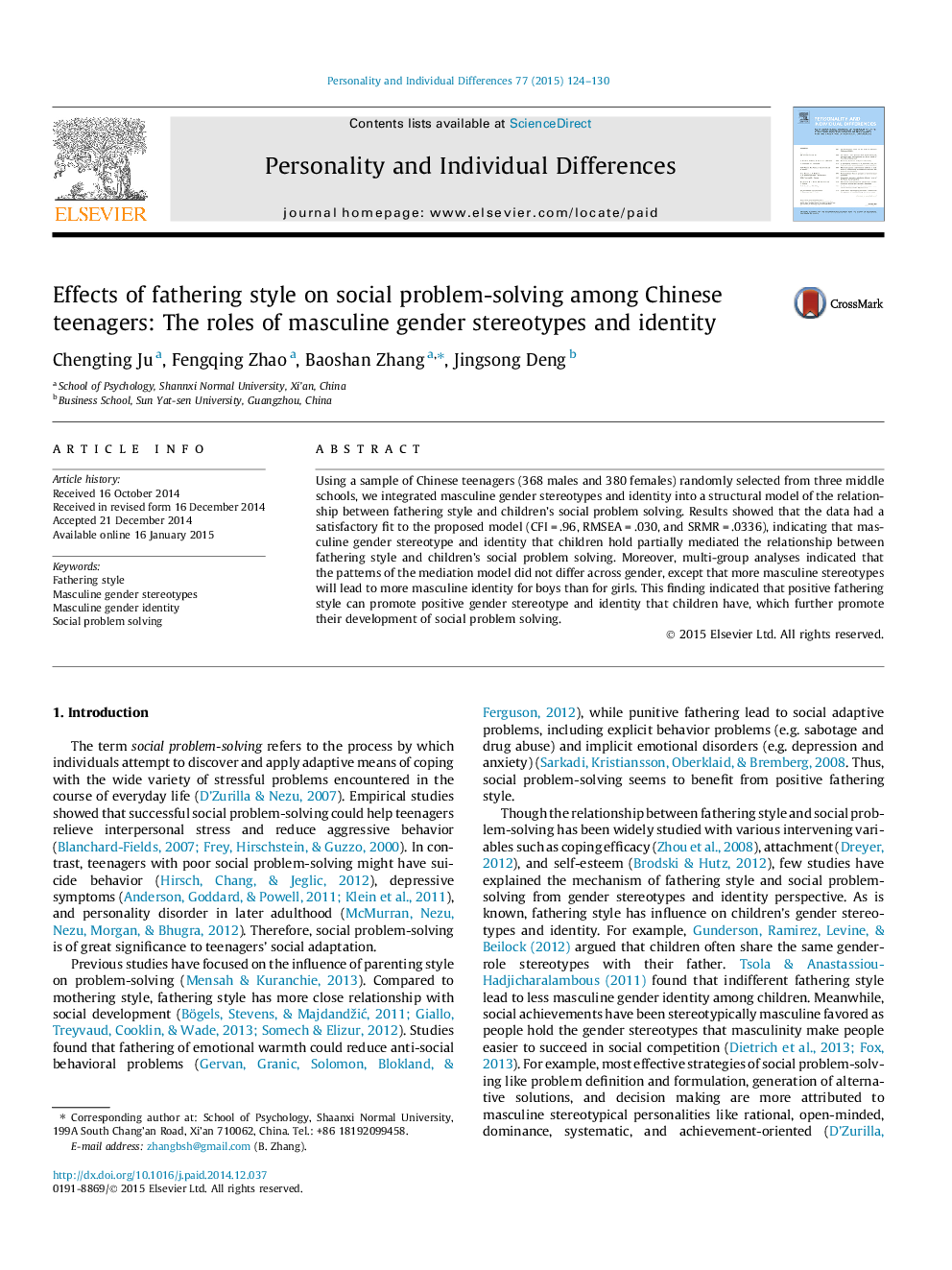| Article ID | Journal | Published Year | Pages | File Type |
|---|---|---|---|---|
| 890218 | Personality and Individual Differences | 2015 | 7 Pages |
•Positive fathering style predicts social problem solving.•Fathering style has influence on masculine gender stereotypes and identity.•Positive masculine gender identity promotes social problem solving.•Masculine stereotypes and identity mediates the fathering style-social problem solving relationship.•Masculine stereotypes have more impact on masculine identity for boys.
Using a sample of Chinese teenagers (368 males and 380 females) randomly selected from three middle schools, we integrated masculine gender stereotypes and identity into a structural model of the relationship between fathering style and children’s social problem solving. Results showed that the data had a satisfactory fit to the proposed model (CFI = .96, RMSEA = .030, and SRMR = .0336), indicating that masculine gender stereotype and identity that children hold partially mediated the relationship between fathering style and children’s social problem solving. Moreover, multi-group analyses indicated that the patterns of the mediation model did not differ across gender, except that more masculine stereotypes will lead to more masculine identity for boys than for girls. This finding indicated that positive fathering style can promote positive gender stereotype and identity that children have, which further promote their development of social problem solving.
